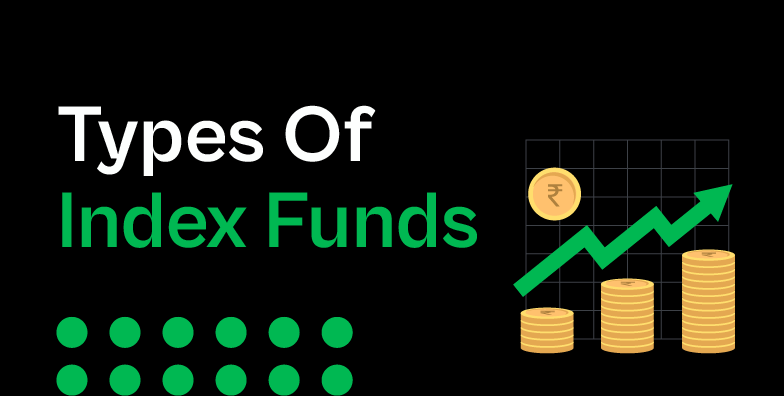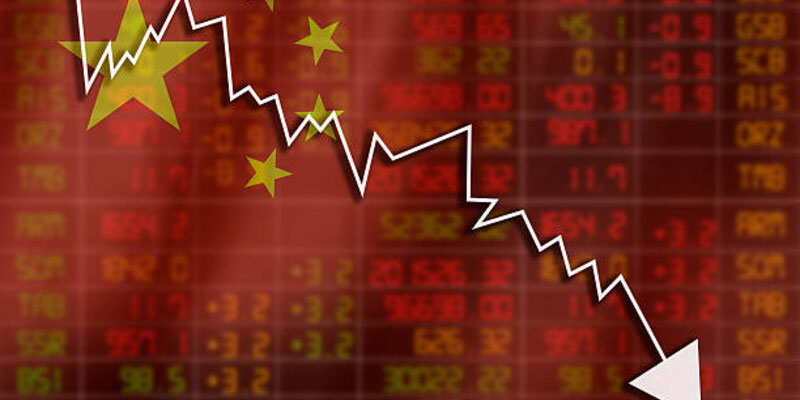
Are index funds the key to achieving financial success, or do they come with a hidden cost? For anyone considering investing in an index fund, it's important to consider all the potential risks arising from such a choice. Index funds can be an effective way for investors to grow their money – but there are also warning signs that should be looked out for before making this type of investment.
In this blog post, we'll go through what you need to know and pay attention to when it comes to index funds so you can make sure any decisions made regarding your finances are informed.
What are index funds, and how can they be beneficial to investors:
Index funds are securities portfolios that track an underlying index, such as the S&P 500 or the Dow Jones Industrial Average. The main benefit of using index funds is that they offer investors a chance to gain exposure to a broad portfolio of stocks with minimal effort since there is no need for active trading. This can help reduce transaction costs and provide diversification for your investments. Index funds typically have lower expenses than actively managed mutual funds, making them less expensive.
However, despite the potentialofiated with owning index funds, several potential warnings should be considered before investing in them. For starters, because indexes are weighted towards larger companies and may not represent smaller companies in their sector, index funds may not be a good option for investors looking for more targeted exposure. Additionally, an index fund's performance is tied to its underlying index's performance – so if that index underperforms, investors can also suffer losses.
Finally, while passive investing strategies such as index funds offer potential benefits, it's important to remember that active management also has its advantages. Active managers attempt to beat the market through careful selection and timing of investments which could potentially allow them to outperform indexes in certain circumstances. As with any investment decision, it's important to understand all the risks associated with each strategy before committing your hard-earned money.
The potential dangers of index funds:
The potential dangers of index funds should be considered when making an investment decision. Despite the many advantages of owning index funds, there are also certain risks to consider before taking the plunge.
One of the most important warnings about index funds is that they may only provide partial exposure to some sectors or markets in which you might be interested. Indexes are weighted towards large companies, so smaller companies may need to be fully represented. Therefore, if you are looking for targeted exposure in a particular sector or market, there may be better options than an index fund.
Another danger to look out for when investing in index funds is that their performance is tied directly to the underlying index. If the underlying index performs poorly, the investor will also suffer losses. Additionally, it is important to note that index funds typically have higher turnover rates than actively managed funds. This means more trading fees may be incurred, potentially reducing investors’ returns.
Finally, some investors prefer an active management strategy when investing in stocks because they believe it can lead to better returns over time than passive investing methods like index funds. Active managers attempt to outperform the markets by carefully selecting stocks and timing investments, giving them a potential edge over indexes.
How the stock market can affect index fund performance:
The stock market can have a huge impact on the performance of index funds. Since index funds are tied to an underlying index, any changes in the stock market will directly affect their performance.
For example, when stock prices rise, the value of an index fund will rise as well since it is composed of securities that track the same index. On the other hand, when stock prices fall, so too does the value of an index fund as it loses money along with its underlying stocks.
In addition to price fluctuations in individual stocks, broader economic forces can also affect index funds' performance. Factors such as interest rates and inflation can significantly affect how stocks behave, which in turn impacts indexes and consequently affects the return rate for investors.
Investors must pay attention to the stock market when investing in index funds, as changes can happen rapidly and dramatically. Investing in index funds can provide investors with a way to diversify their investments, but it's also important to remember that these funds come with the risk of fluctuating returns depending on the performance of their underlying indexes. Investors must know how different economic forces affect their investments before committing money.
Different strategies when investing in index funds:
There are various strategies that investors can use when investing in index funds. Firstly, investors may choose to pursue a "buy and hold" approach, which involves maintaining the same portfolio of index funds for an extended period without any major changes. This strategy is suitable for long-term investment goals such as retirement planning or wealth building, as it allows investors to take advantage of the compounding returns that come with holding investments over a long period.
Alternatively, some investors opt for more active management techniques when dealing with index funds. These involve regularly monitoring and adjusting the portfolio based on market conditions and potential opportunities. As mentioned, actively managed portfolios may outperform indexes in certain circumstances if they are well managed.
Another strategy investors may employ is "diversification," which involves investing in multiple index funds with different risk levels, sectors, and markets. This technique helps spread out investment risk and potentially lowers overall portfolio volatility. Diversification should always be considered when investing in index funds, as it can reduce losses from a single stock or sector.
FAQs
Q: How can I ensure that my investments stay balanced?
A: Periodically checking on your portfolio and adjusting according to the changes in the stock market is key to keeping your investments balanced. Additionally, it’s important to research potential investments before committing to them – always ensure you know exactly what you’re getting into to minimize risk. Lastly, seeking professional advice from a financial advisor may help provide valuable insight and guidance when deciding on your finances.
Q: What other things should I consider before investing in an index fund?
A: Before investing in an index fund, it’s important to understand how they work and the risks associated with such an investment vehicle. You should also examine the costs associated with an index fund and compare them to other investment options. Lastly, ensure you have a clear plan for your financial goals – this will help keep you focused and on track toward achieving success in your investments.
Q: What warning signs should I know when considering an index fund?
A: It’s important to watch for warning signs such as high fees, lack of diversification, and hidden costs. Additionally, you should pay attention to the stock market and its fluctuations – if the market is experiencing a downturn, it may not be the best time to invest in an index fund. Finally, read reviews from other investors and research past performance before investing your money into any kind of investment vehicle.
Conclusion
Index funds can be an effective way to invest your money, but it is important to consider any investment's potential risks. Ensure you understand how index funds work and what warning signs to watch out for before committing any funds – this will help ensure that your decisions are informed. Lastly, always keep track of the market conditions and seek professional advice if needed. With a little bit of research and due diligence, investing in index funds can be a great way to grow your wealth over time.



